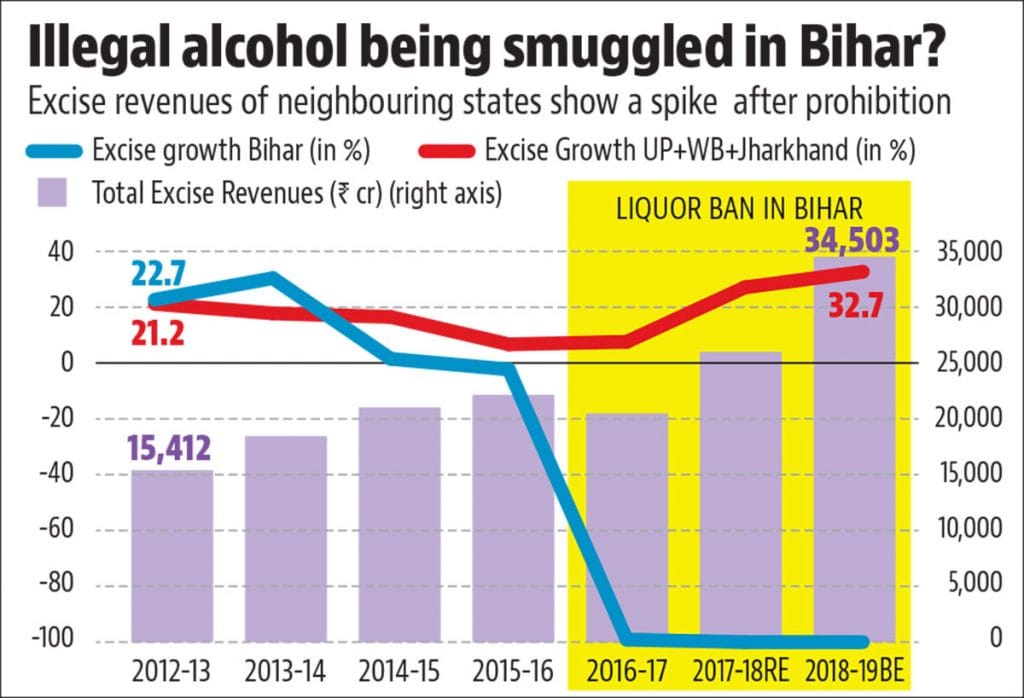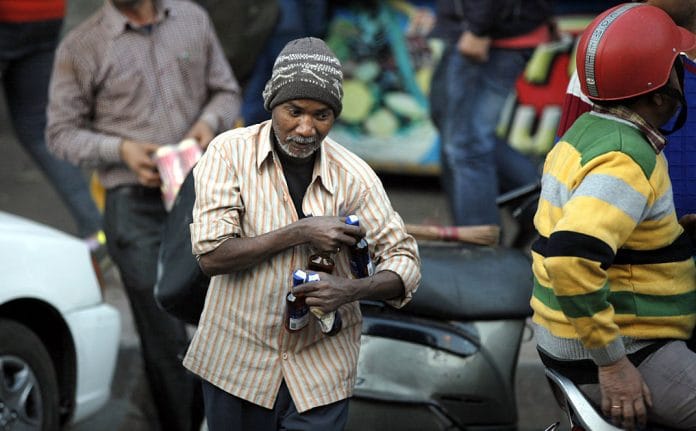The annual growth in the excise revenues of UP, Jharkhand and West Bengal in 2017-18 and 2018-19 has been the highest since 2001-02.
New Delhi: In April 2016, the Bihar government implemented complete prohibition in the state. This entailed a substantial loss of revenue for the state government.
In 2015-16, Bihar earned Rs 3141.7 crore in state excise, which is levied on alcohol. In the three years preceding prohibition i.e. 2013-14 to 2015-16, state excise duties accounted for more than 14 per cent of Bihar’s tax revenues.
The state government has been trying to justify the prohibition by arguing that the money that used to be spent on alcohol consumption is being spent on other purposes now.
In June 2018, a report by the Bihar government-funded Development Management Institute and Patna-based Asian Development Research Institute claimed that food and clothing sales had increased in a big way after prohibition.
Such claims are based on the assumption that prohibition has not been defeated by illicit supply of alcohol in the state. An HT analysis of excise revenues in Bihar and neighbouring states — West Bengal, Jharkhand and Uttar Pradesh — questions this belief. Here’s why.
Bihar’s state excise revenues comprised 15.6 per cent of the four states’ total during 2011-12 to 2015-16 — the five years preceding the announcement of prohibition in Bihar. As Bihar’s excise revenues plummeted after prohibition, the total excise revenues for these four states fell in absolute terms in 2016-17.
However, this trend quickly reversed in the next two years. In fact, the annual growth in state excise revenues of these states in 2017-18 and 2018-19 has been the highest since 2001-02. With excise revenues dropping to zero in Bihar, it is the three neighbouring states which have benefited from rising revenues.

To be sure, the 2017-18 and 2018-19 figures are revised estimates and budget estimates, and subject to change. If these trends hold, then only two explanations can be offered: A disproportionate rise in liquor consumption in Bihar’s neighbouring states after 2016-17 or smuggling of liquor from these states into Bihar, which explains the disproportionate rise in excise revenues.
Anecdotal evidence on reports of alcohol being sold illegally in Bihar suggests that the latter possibility cannot be ruled out. This, if true, would also mean that prohibition has only led to the loss of revenue and not the bottle in Bihar.
By special arrangement with ![]()






